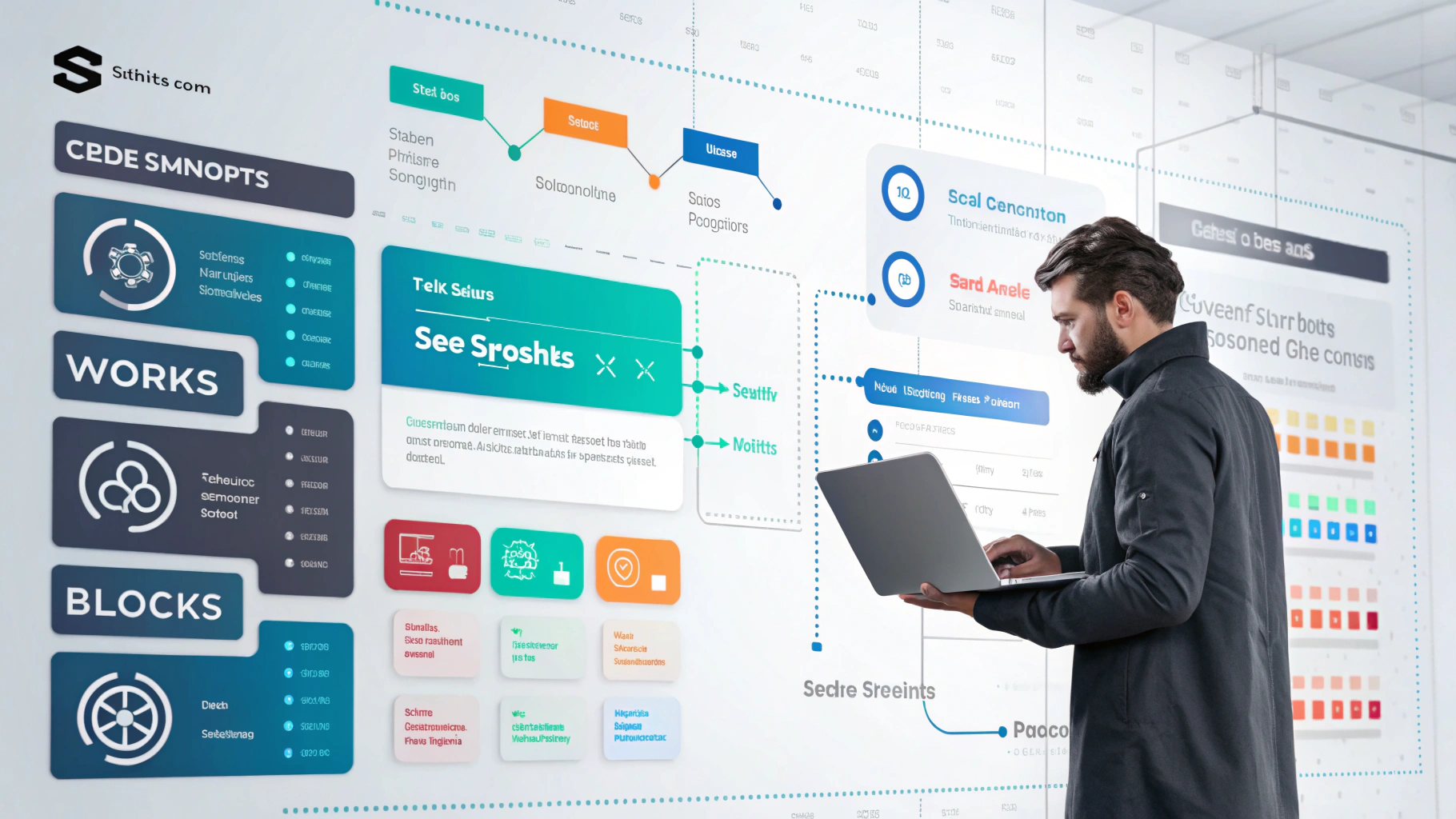Rocket Your Website: Skyrocket Your Google Rankings!
Have you ever wondered why some websites consistently appear on the first page of Google while yours struggles to gain visibility? The difference often lies in their approach to Organic Ranking. Recent studies show that 75% of users never scroll past the first page of search results, meaning if you’re not ranking well, you’re essentially invisible to most of your potential customers.
The digital landscape is more competitive than ever, with over 1.8 billion websites vying for attention. However, by implementing proper SEO strategy, Google visibility techniques, even smaller businesses can achieve remarkable results. This comprehensive guide will walk you through proven methods to boost your website’s rankings naturally and sustainably.
Why It Matters

The importance of Organic Ranking cannot be overstated in today’s digital ecosystem. According to BrightEdge research, organic search drives 53% of all website traffic, significantly outperforming all other channels. Furthermore, Search Engine Journal reports that organic search has a closing rate of 14.6%, compared to just 1.7% for outbound tactics like cold calling or direct mail.
These statistics highlight a fundamental truth: when users find your website through organic search, they’re actively seeking solutions you provide. This makes them more qualified leads, resulting in higher conversion rates and better ROI compared to paid advertising. With Google processing over 8.5 billion searches daily, perfecting your organic ranking strategy isn’t just beneficial—it’s essential for business survival.
Core Concepts
Understanding the fundamentals of Organic Ranking begins with grasping how search engines work. Think of Google as a librarian constantly organizing and cataloging billions of web pages. When someone searches for information, this librarian needs to quickly retrieve the most relevant, authoritative resources.
Google uses over 200 ranking factors to determine page relevance and authority. These include:
- Content quality and relevance – Is your content comprehensively answering user queries?
- Technical website structure – Can Google easily crawl and understand your site?
- Backlink profile – Do other reputable websites reference your content?
- User experience signals – How do visitors interact with your site?
- Mobile-friendliness – Does your site perform well on all devices?
These factors work together like instruments in an orchestra. When harmonized properly, they create a symphony that Google rewards with higher rankings.
Strategy or Implementation Guide
Improving your website’s Organic Ranking is a methodical process. Follow these steps to create a comprehensive SEO roadmap:
Step 1: Conduct a Thorough SEO Audit
Before implementing changes, assess your current standing. Analyze your website’s technical health, content quality, and backlink profile. Tools like Semrush, Ahrefs, or Google’s own Search Console provide valuable insights into your site’s performance and identify specific areas for improvement.
Step 2: Optimize Technical SEO Elements
Technical optimization creates the foundation for SEO strategy, Google visibility. Focus on:
- Improving site speed (aim for load times under 3 seconds)
- Implementing proper schema markup
- Creating an XML sitemap
- Ensuring mobile responsiveness
- Securing your site with HTTPS
- Fixing broken links and crawl errors
Step 3: Develop a Keyword Strategy
Identify relevant keywords with significant search volume but manageable competition. Look beyond obvious high-volume terms to find long-tail keywords that better match user intent and conversion potential.

Step 4: Create High-Quality, Optimized Content
Develop comprehensive content that addresses user needs while naturally incorporating your target keywords. Focus on:
- Crafting compelling titles and meta descriptions
- Using proper heading structure (H1, H2, H3)
- Including relevant images with alt text
- Writing in-depth content (studies show top-ranking pages average 1,890 words)
- Optimizing for featured snippets and rich results
Step 5: Build Quality Backlinks
Earn authoritative backlinks through:
- Creating shareable, linkable assets (research, infographics, tools)
- Guest posting on relevant industry sites
- Building relationships with influencers and thought leaders
- Reclaiming unlinked brand mentions
Benefits
Implementing effective Organic Ranking strategies yields numerous advantages:
-
Cost-effectiveness: While organic SEO requires upfront investment, it delivers long-lasting results with ongoing value, unlike paid advertising that stops performing once you stop paying.
-
Credibility enhancement: Users trust organic results more than paid placements. A HubSpot study found that 70% of marketers view SEO as more effective than PPC for generating sales.
-
Competitive advantage: Only 30% of small businesses have an active SEO strategy, creating opportunities to outperform competitors who neglect this channel.
-
Sustainable traffic growth: Unlike algorithm-dependent social media, search engine traffic tends to be more stable and predictable over time.
-
Higher conversion rates: Search traffic converts at 8.5x the rate of display advertising, according to Search Engine Watch.
Case Study
Consider a mid-sized e-commerce retailer specializing in eco-friendly home goods. Prior to implementing a comprehensive Organic Ranking strategy, they were averaging 15,000 monthly visitors with a 1.8% conversion rate.
After performing a thorough SEO audit, optimizing site structure, developing content around strategic keywords, and building quality backlinks, their results after six months were remarkable:
- Organic traffic increased by 143% (to 36,450 monthly visitors)
- Conversion rate improved to 3.2%
- Revenue from organic search grew by 285%
- Their cost per acquisition decreased by 62%
The key insight? Their most significant gains came not from ranking for high-volume competitive terms, but from dominating specific long-tail keywords with clear purchase intent.
Tools & Resources
These tools will help implement your SEO strategy, Google visibility plan:
- Research & Analysis: Semrush, Ahrefs, Moz Pro, Google Keyword Planner
- Technical SEO: Screaming Frog, Google Search Console, GTmetrix, PageSpeed Insights
- Content Optimization: Clearscope, Surfer SEO, MarketMuse
- Rank Tracking: Rank Ranger, Wincher, SE Ranking
- Backlink Building: BuzzStream, Hunter.io, HARO
Common Mistakes to Avoid
- Ignoring search intent: Ranking isn’t enough if your content doesn’t match what users actually seek.
- Over-optimizing content: Keyword stuffing and artificial optimization tactics can trigger penalties.
- Neglecting mobile users: With Google’s mobile-first indexing, mobile optimization is non-negotiable.
- Pursuing quantity over quality in link building: A few high-authority links outperform many low-quality ones.
- Expecting instant results: Organic Ranking improvements typically take 3-6 months to materialize.
Future Trends
The future of organic search is evolving rapidly. Key trends to monitor include:
- AI and machine learning integration: Google’s algorithms are becoming increasingly sophisticated at understanding user intent and content quality.
- Voice search optimization: With smart speakers in millions of homes, voice search optimization presents new opportunities.
- Core Web Vitals: User experience metrics will continue gaining importance as ranking factors.
- E-E-A-T focus: Expertise, Experience, Authoritativeness, and Trustworthiness will remain critical ranking factors.
- Zero-click searches: Featured snippets and knowledge panels will continue changing how users interact with search results.
Conclusion
Achieving and maintaining strong Organic Ranking requires dedication, technical knowledge, and strategic content development. However, the rewards—sustainable traffic, qualified leads, and cost-effective conversions—make it one of the most valuable digital marketing investments.
Remember that SEO is not a one-time project but an ongoing process. By consistently applying the strategies outlined in this guide and adapting to algorithm updates, you can steadily improve your website’s visibility and drive meaningful business results.
Ready to transform your website’s performance? Start with an audit, establish clear goals, and implement these proven techniques. Your path to page one begins today.
FAQs
How long does it take to improve Google rankings?
Noticeable improvements typically take 3-6 months, depending on your site’s current standing, competition level, and implementation quality.
Is it possible to rank well without building backlinks?
While possible in low-competition niches, most competitive keywords require quality backlinks as they remain one of Google’s top ranking factors.
Should I focus on keywords or user experience?
Both are essential. Keywords help Google understand your content’s relevance, while user experience signals indicate content quality and utility.
How often should I publish new content?
Quality trumps quantity. Focus on publishing comprehensive, valuable content consistently rather than rushing inferior content more frequently.
Can I do SEO myself or should I hire an expert?
Basic SEO principles can be implemented by most website owners, but competitive industries often require specialized expertise to achieve significant results.

